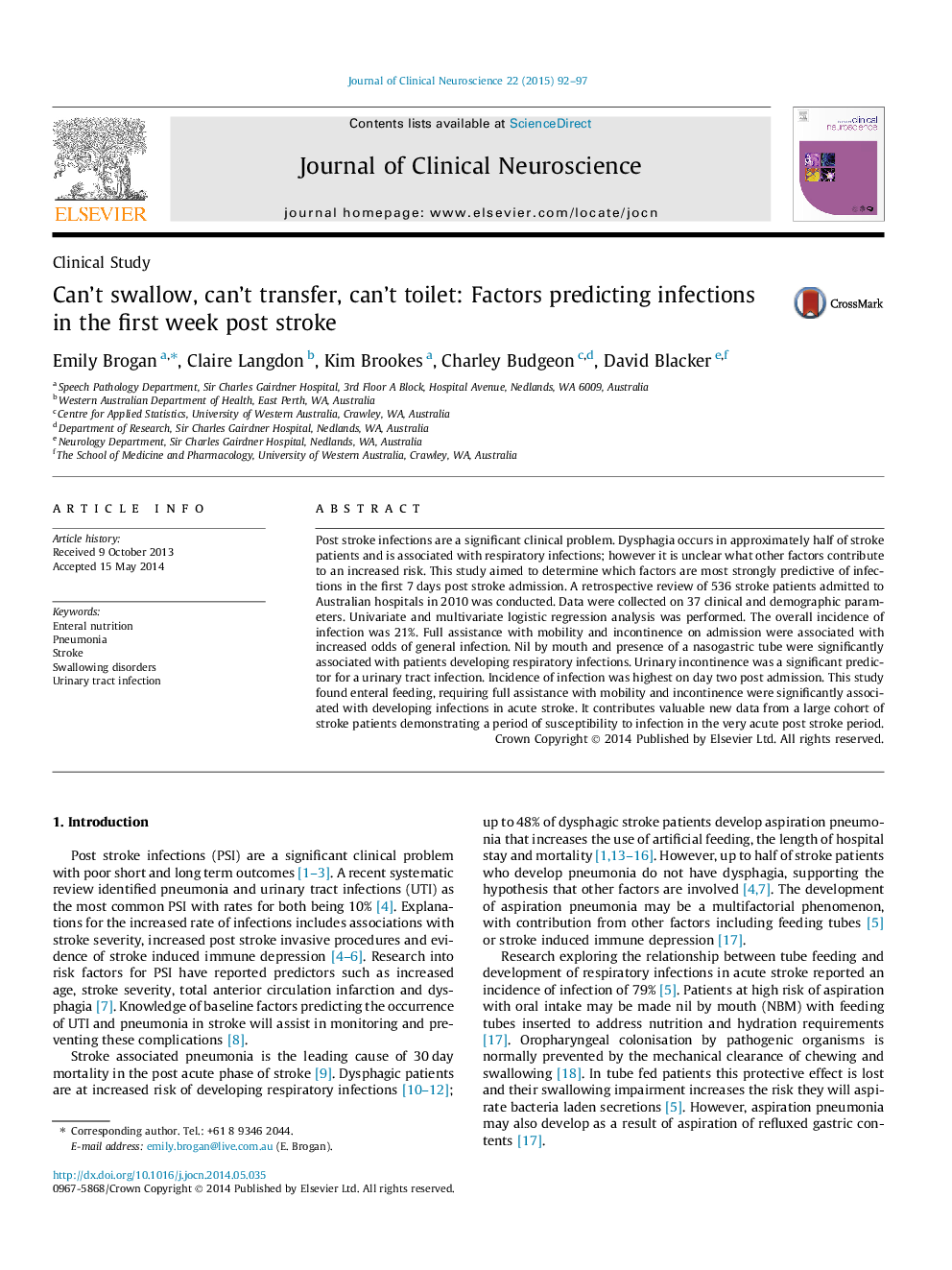| Article ID | Journal | Published Year | Pages | File Type |
|---|---|---|---|---|
| 3058970 | Journal of Clinical Neuroscience | 2015 | 6 Pages |
Post stroke infections are a significant clinical problem. Dysphagia occurs in approximately half of stroke patients and is associated with respiratory infections; however it is unclear what other factors contribute to an increased risk. This study aimed to determine which factors are most strongly predictive of infections in the first 7 days post stroke admission. A retrospective review of 536 stroke patients admitted to Australian hospitals in 2010 was conducted. Data were collected on 37 clinical and demographic parameters. Univariate and multivariate logistic regression analysis was performed. The overall incidence of infection was 21%. Full assistance with mobility and incontinence on admission were associated with increased odds of general infection. Nil by mouth and presence of a nasogastric tube were significantly associated with patients developing respiratory infections. Urinary incontinence was a significant predictor for a urinary tract infection. Incidence of infection was highest on day two post admission. This study found enteral feeding, requiring full assistance with mobility and incontinence were significantly associated with developing infections in acute stroke. It contributes valuable new data from a large cohort of stroke patients demonstrating a period of susceptibility to infection in the very acute post stroke period.
